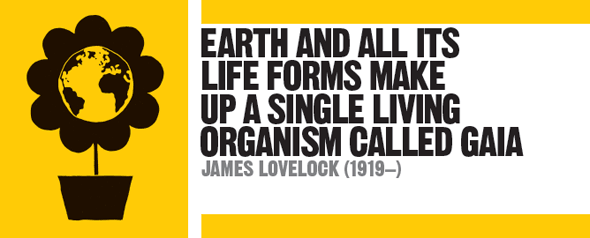
IN CONTEXT
Biology
1805 Alexander von Humboldt declares that nature can be represented as one whole.
1859 Charles Darwin argues that life forms are shaped by their environment.
1866 German naturalist Ernst Haeckel coins the term ecology.
1935 British botanist Arthur Tansley describes Earth’s life forms, landscape, and climate as a giant ecosystem.
1970s Lynn Margulis describes the symbiotic relationship of microbes and Earth’s atmosphere; she later defines Gaia as a series of interacting ecosystems.
1997 The Kyoto Protocol sets targets for the reduction of greenhouse gases.
During the early 1960s, a team was assembled by NASA in Pasadena, California, to think about how to look for life on Mars. British environmental scientist James Lovelock was asked how he would tackle the problem, which prompted him to think about life on Earth.
Lovelock soon discovered a range of necessary features for life. All life on Earth depends on water. The average surface temperature must stay within 10–16°C (50–60°F) for enough liquid water to be present, and it has remained within this range for 3.5 million years. Cells require a constant level of salinity and generally cannot survive levels above 5 per cent, and ocean salinity has remained at about 3.4 per cent. Since oxygen first appeared in the atmosphere, about two billion years ago, its concentration has remained close to 20 per cent. If it were to drop below 16 per cent, there would not be enough to breathe – if it rose to 25 per cent, forest fires would never go out.
The Gaia hypothesis
Lovelock suggested that the entire planet makes up a single, self-regulating, living entity, which he called Gaia. The very presence of life itself regulates the temperature of the surface, the concentration of oxygen, and the chemical composition of the oceans, optimizing conditions for life. However, he warned that human impact on the environment may disrupt this delicate balance.
"Evolution is a tightly coupled dance, with life and the material environment as partners. From the dance emerges the entity Gaia."
James Lovelock
See also: Alexander von Humboldt • Charles Darwin • Charles Keeling • Lynn Margulis